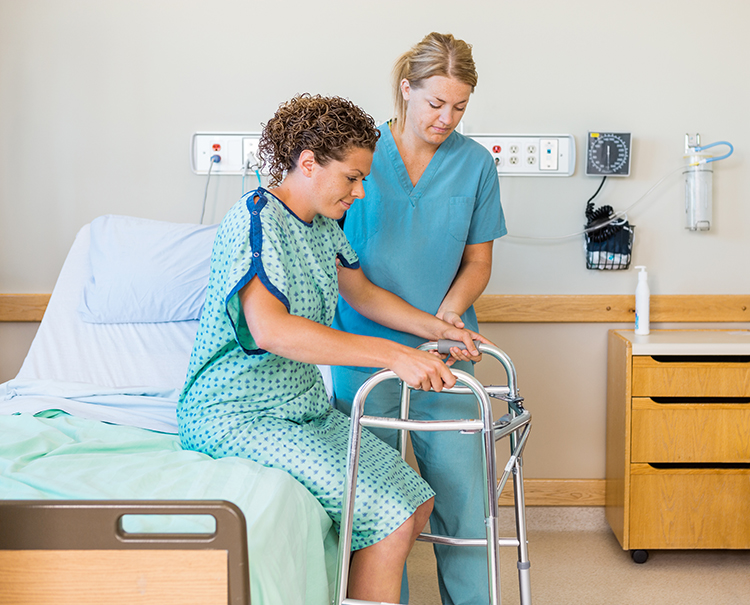
Total joint replacement is not a pain free surgery. We will work with you to minimize pain, but pain is a natural response to surgery and we cannot take your pain completely away.
Pain Medications
Your nurse will work with you to help you be comfortable after surgery. The nurse will assess your pain with a pain scale from 0-10. The goal is to take the sharp edge off the pain and allow you to function, i.e. get out of bed, exercise, and complete activities of daily living.
Managing Your Pain at Home
Make sure you and your coach understand your physician instructions for pain medications in your discharge paperwork and on your medication bottles. Your pain may increase for a few days after you get home from the hospital. Use a medication chart to record medication usage.
In addition to medication, you can manage your pain by:
- Elevating your leg – toes above your nose.
- Use ice most of the time for the first 48 hours, then as needed for pain and swelling.
- Getting up and moving during the day for meals, showering, and exercises.
Risk of Opioid Dependency
Although opioids help relieve pain after total joint replacement surgery they are a narcotic and can be addictive. It is important to use opioids only as directed by your doctor. As soon as your pain begins to improve, stop taking opioids. Talk to your doctor if your pain has not begun to improve within a few days of your treatment.





